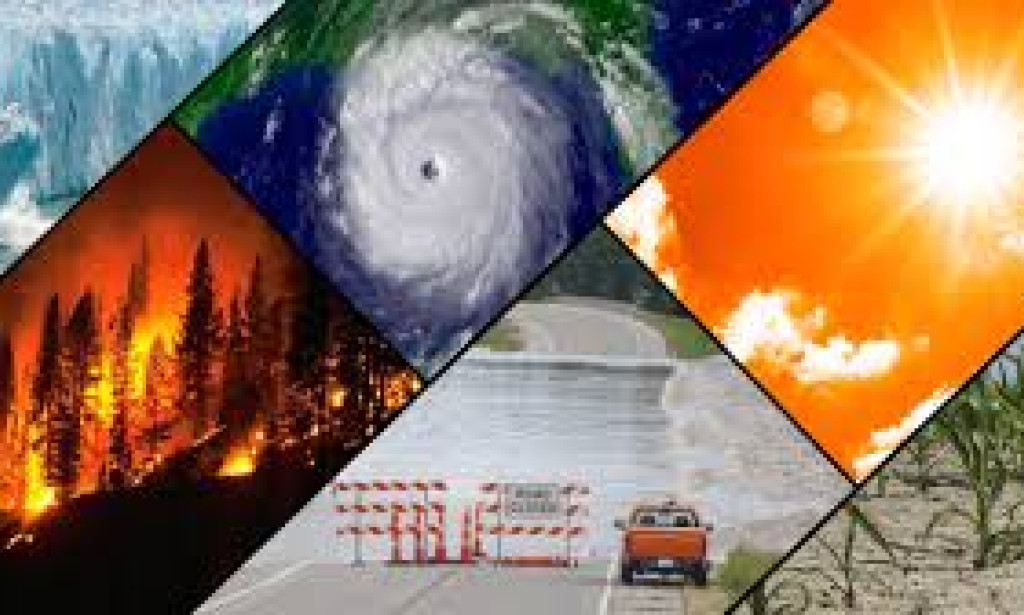The Impact of Climate Change
Climate change is one of the most pressing global issues of the 21st century. It refers to long-term shifts in temperatures and weather patterns, primarily caused by human activities such as the burning of fossil fuels, deforestation, and industrial emissions. These activities release greenhouse gases (GHGs) like carbon dioxide and methane into the atmosphere, intensifying the natural greenhouse effect and leading to global warming. The impact of climate change is far-reaching, affecting ecosystems, human health, economies, and weather systems across the planet.

One of the most immediate and visible impacts of climate change is the rise in global temperatures.
Over the past century, the Earth’s average surface temperature has increased by more than 1°C, with the last decade being the warmest on record. This seemingly small change has massive implications. Warmer temperatures have led to the melting of polar ice caps and glaciers, contributing to rising sea levels. Coastal cities and small island nations are particularly vulnerable, facing the risk of being submerged, which could displace millions of people and destroy infrastructure.

Climate change also disrupts weather patterns, making extreme weather events more frequent and intense.
Hurricanes, droughts, heatwaves, floods, and wildfires are becoming increasingly common. For instance, wildfires in Australia, California, and the Amazon have intensified in recent years, destroying ecosystems, homes, and lives. Prolonged droughts in parts of Africa and the Middle East have led to crop failures, food shortages, and water scarcity, exacerbating poverty and contributing to conflicts and migration.
The ecological impact of climate change is equally alarming. Rising temperatures and shifting weather patterns affect biodiversity by altering habitats and the availability of resources. Many plant and animal species struggle to adapt to the rapid changes, leading to population declines and even extinction. Coral reefs, which are among the most diverse ecosystems on Earth, are particularly sensitive to temperature changes. Warming oceans cause coral bleaching, a phenomenon that severely damages reef systems and the marine life they support.

Human health is also at risk due to climate change.
Increased temperatures and air pollution can aggravate respiratory and cardiovascular diseases. Changes in climate influence the spread of infectious diseases; for example, warmer conditions allow mosquitoes to thrive in regions previously too cold for them, spreading diseases like malaria and dengue fever. Heatwaves pose a direct threat to vulnerable populations such as the elderly, children, and those with preexisting health conditions.
Economically, the consequences of climate change are immense. Damage from natural disasters, loss of agricultural productivity, and the strain on water resources can significantly impact global and local economies. Insurance companies are seeing rising costs due to an increase in weather-related claims. In agriculture, changes in rainfall patterns and extreme weather events reduce crop yields, threaten food security, and increase prices. Developing countries, which are often the least responsible for global emissions, are disproportionately affected due to limited resources and infrastructure to cope with the consequences.

Despite the daunting challenges, efforts to combat climate change are underway.
Renewable energy sources like solar, wind, and hydroelectric power are being adopted to reduce dependence on fossil fuels. International agreements such as the Paris Agreement aim to unite countries in limiting global temperature rise and promoting sustainable development. Individuals are also becoming more aware of their carbon footprint and taking steps to reduce it through lifestyle changes.
In conclusion, climate change is a multifaceted issue with profound impacts on the planet and all life forms. It threatens ecosystems, human health, economic stability, and global security. Addressing it requires urgent, coordinated action across all sectors of society—from governments and businesses to individuals. While the challenges are significant, the opportunity to create a more sustainable and equitable future makes the fight against climate change not only necessary but also worthwhile.




You must be logged in to post a comment.